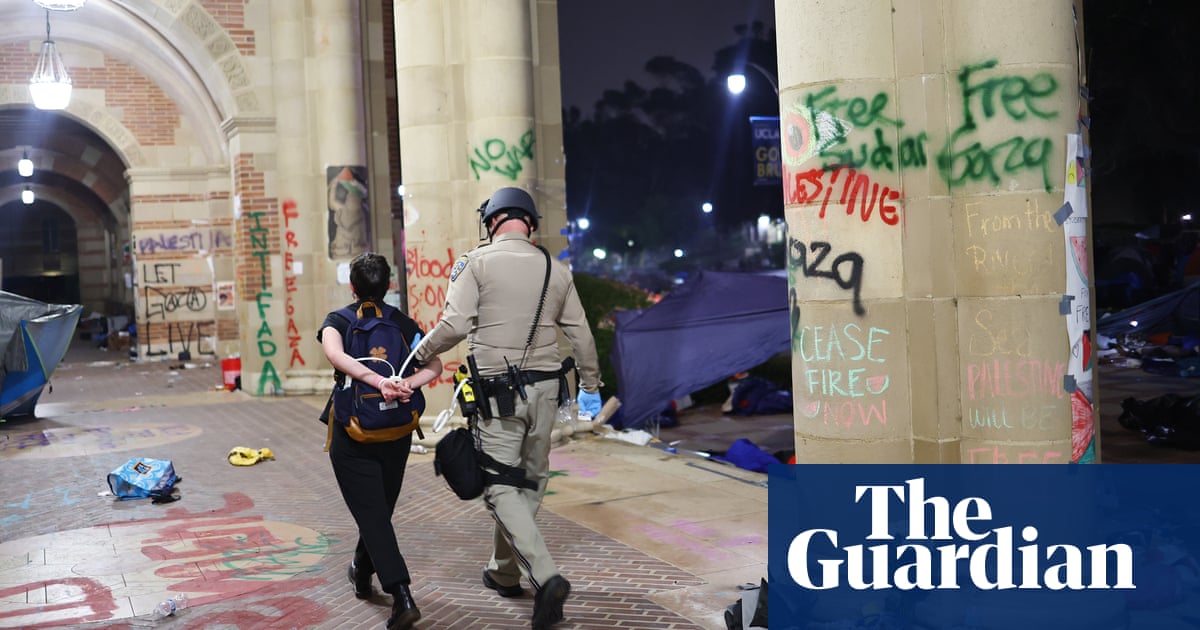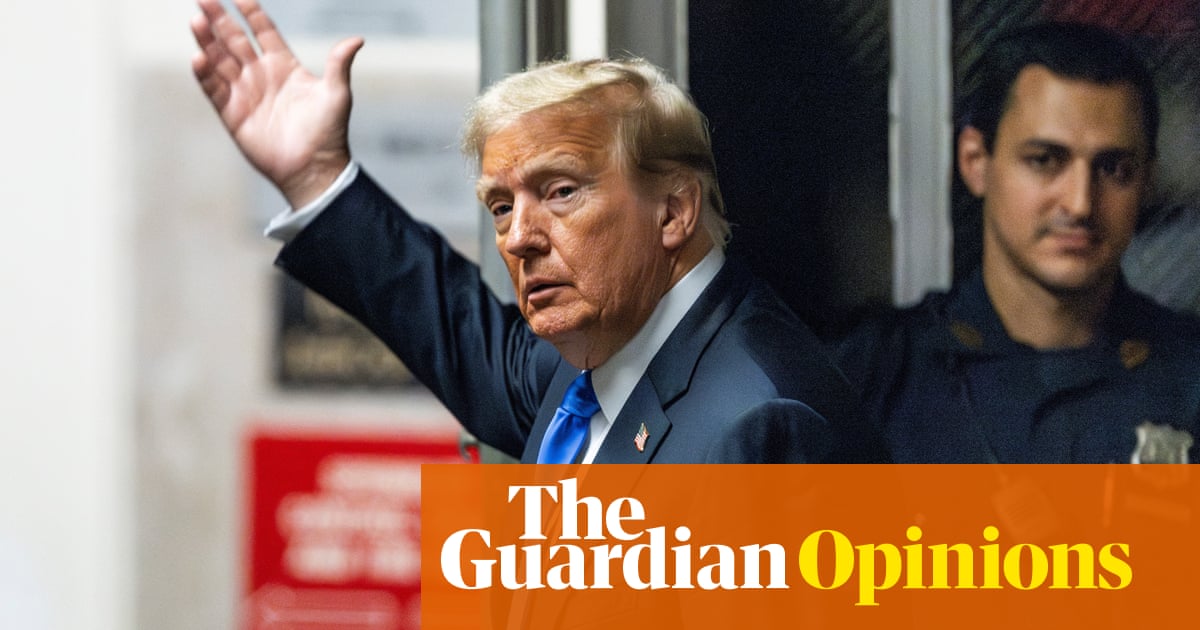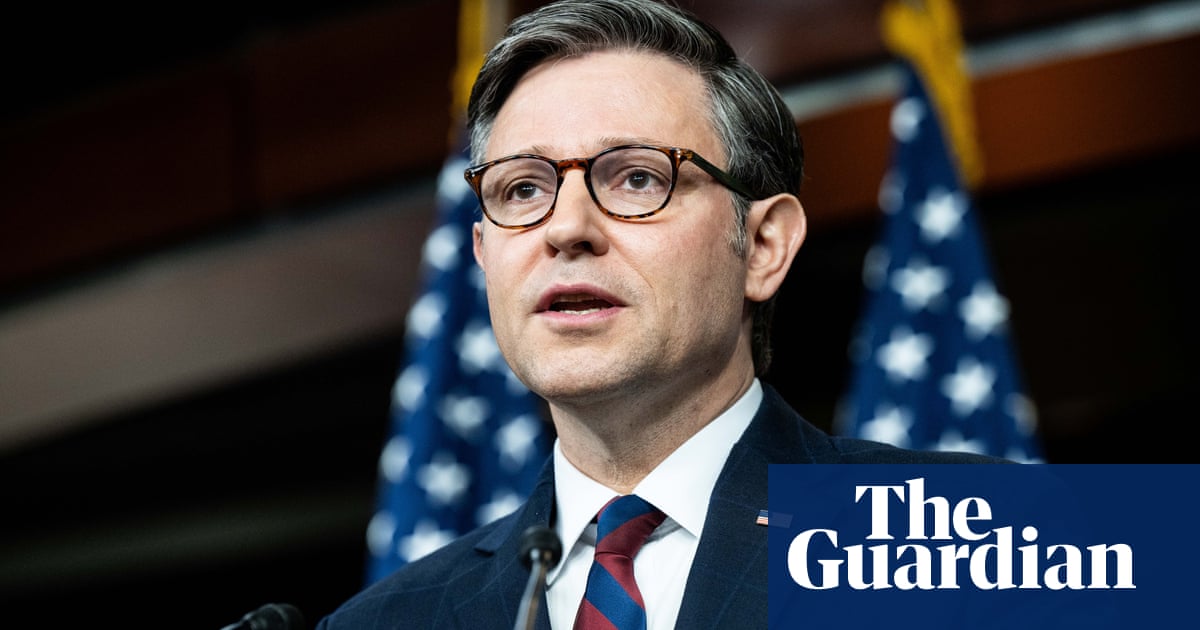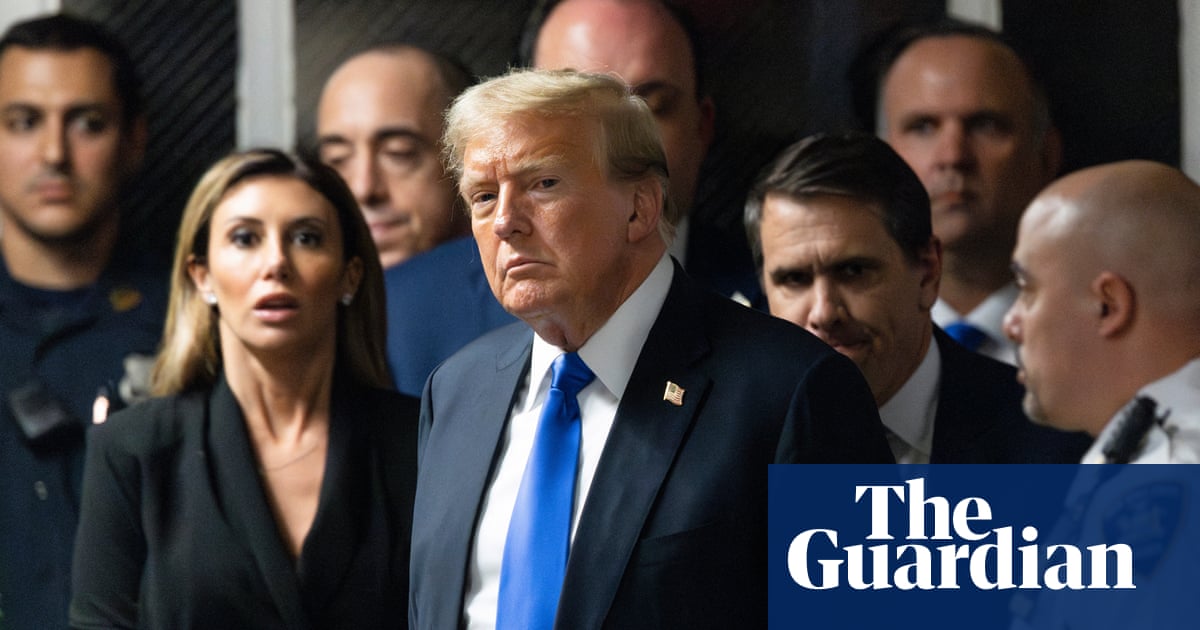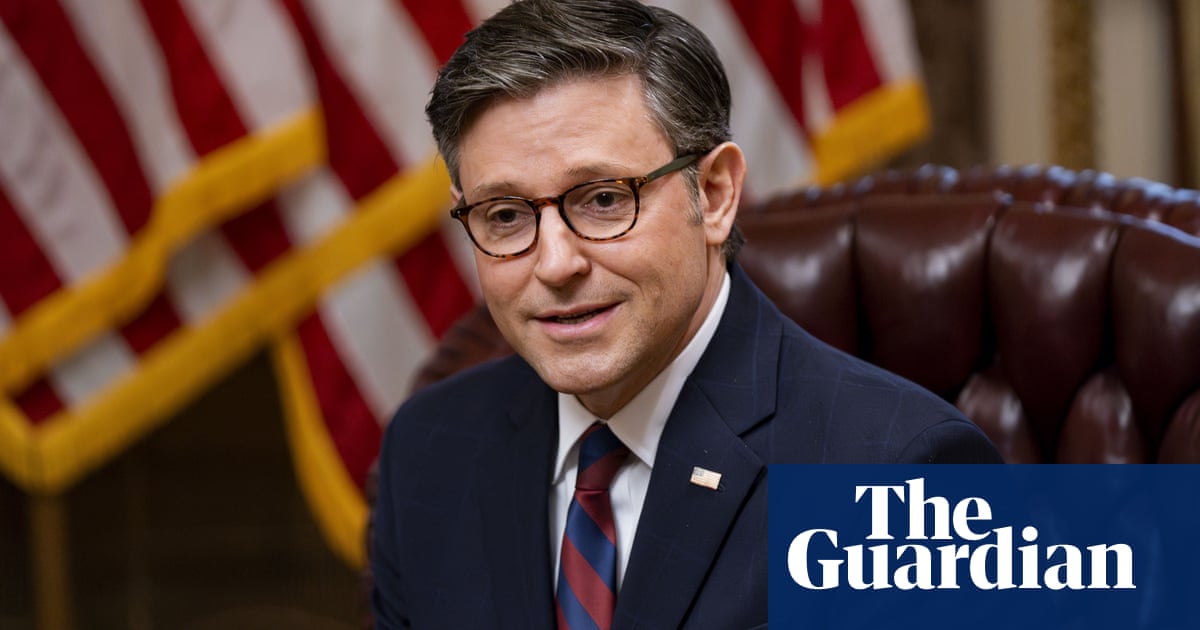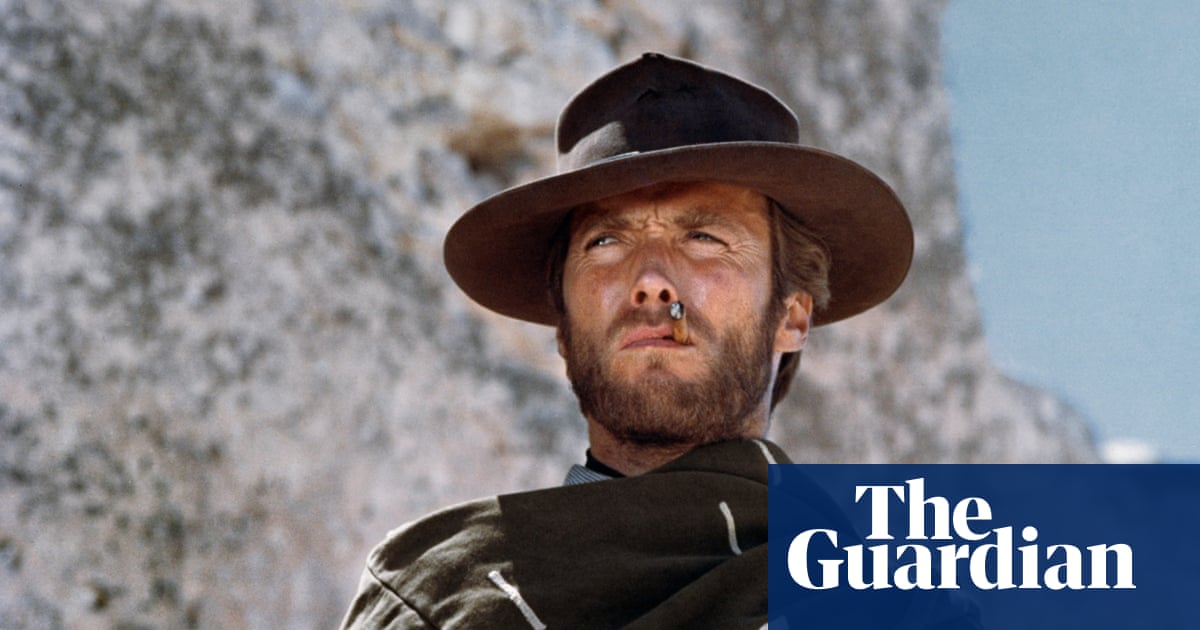Joe Bidenâs delay in sanctioning the use of western weapons against targets in Russia has left the Kremlinâs forces laughing at Ukraine and able to âhuntâ its people, Volodymyr Zelenskiy has told the Guardian.
In a wide-ranging interview in Kyiv, the Ukrainian president said that the White Houseâs equivocation had cost lives and he urged the US president to overcome his perennial worries about possible nuclear âescalationâ with Moscow.
On Thursday night it emerged that, after months of lobbying, the US had taken a small but symbolic step â and for the first time would permit some American-made weapons to be used by Kyivâs military to fire inside Russia in its defence of the city of Kharkiv.
But in his Guardian interview, Zelenskiy made clear he needed to be able to use âpowerfulâ long-range weapons that could hit targets inside deep Russian territory â a red line the White House has refused to lift.
The US, he said, needed to âbelieve in us moreâ.
Without this green light, Zelenskiy said other allies, such as the UK, may not allow Ukraine to use their long-range weapons either. âBelieve us, we have to respond. They donât understand anything but force. We are not the first and not the last target,â he said of Russia.
âI think it is absolutely illogical to have [western] weapons and see the murderers, terrorists, who are killing us from the Russian side. I think sometimes they are just laughing at this situation,â he said. âItâs like going hunting for them. Hunting for people. They understand that we can see them, but we cannot reach them.â
Zelenskiy also said:
-
New US weapons had still not arrived in sufficient quantities to equip additional Ukrainian brigades in the north-east, where Russia is advancing.
-
Vladimir Putin was similar to Adolf Hitler, saying: âPutin is not crazy. Heâs dangerous, which is much scarier.â
-
He had asked the former British prime minister Boris Johnson to lobby Donald Trump in the run-up to a vote in the US Congress in April to approve $61bn in aid to Ukraine, which hard-right Republicans had opposed.
-
The UK Labour leader, Keir Starmer, whom he met in Kyiv last year, was a âgood guyâ. He added, after a pause: âRishi [Sunak] is also a good guy.â
Zelenskiyâs remarks came as the Biden administration on Thursday relaxed its longstanding policy forbidding Ukraine from using US weapons against targets inside Russia. It gave permission for Ukraine to fire back â but only near Kharkiv, where Moscow has been waging a fresh offensive.
The decision allows Ukraine to use US-supplied Himars artillery to strike Russian soldiers and command and control centres. Zelenskiyâs press spokesperson, Serhii Nykyforov, welcomed the US move. He told the Guardian: âIt will significantly boost our ability to counter Russian attempts to mass across the border.â
But the White House insisted its policy prohibiting deeper strikes had not changed. Ukraine would still not be able to use the long-range Atacms system within Russia, it said.
Speaking inside his presidential headquarters, Zelenskiy made clear he wanted to use long-range weapons such as the UK-made Storm Shadow missiles. He said that, despite reports to the contrary, the UK had not given â100% permissionâ to do so. Thursdayâs shift is unlikely to change the position either.
In reality, Downing Street waits on the Americans, Zelenskiy suggested. âWe raised this issue twice. We did not get confirmation from him [David Cameron, the foreign secretary],â he said.
A final decision by the UK and other partners depended on âconsensusâ, with the position in Washington being crucial, he suggested. âYou know how it works,â he said.
Biden has long been concerned about the risks of a direct nuclear conflict with Moscow. The US president is likely to skip a peace summit in Switzerland next month, which Zelenskiy has organised. Asked if he felt let down by the US and its leadership, he replied: âI think they need to believe in us more.â
Ten countries had indicated support for the scrapping of âred linesâ. The French president, Emmanuel Macron, indicated his backing on Wednesday, saying Ukraine could use long-range French Scalp missiles against hostile Russian military sites.
In the past week Russia has used guided bombs to kill at least 25 civilians in Kharkiv. Yet Ukraine had not been allowed to fire into Russia, Zelenskiy said. Nor did it have enough conventional weapons to equip reserve brigades, which might be deployed to push the Russians out.
âNo one is accusing anyone,â he said. âWe are where we are. We are fighting, and we are at war, and not at the beginning. Thatâs why we need to find a way out of the situation every day.â
Zelenskiy noted that western countries at peace had âdifferent prioritiesâ and, understandably, did not share Ukraineâs sense of existential urgency. This meant that âdialogueâ rather than action could be frustrating. âFor us, time is our life,â he said. âIf you donât go down in a minute [to a bomb shelter] you can be dead. Therefore the attitude to time is completely different.â
after newsletter promotion
He said Russia was âmoving fasterâ than the west in terms of making and supplying weapons for its armed forces. Zelenskiy likened Ukraine to a ship â ânot a sinking oneâ â that had to get to its destination âfairlyâ and in one piece, saving âas many lives as possibleâ.
He spoke, too, about the emotional and personal toll the war was taking on the people of his country. âYou donât know what war is until it comes to your house, to your street, to a friend of yours, to someone you studied with or to someone you love,â he said. âUntil you have this, the war is somewhere afar.â
During his one-hour interview with the Guardian, Zelenskiy appeared relaxed and positive despite the bleak military situation and a gruelling schedule that saw him visit four EU countries this week. He described Johnson as a âgood friendâ who âreally helped Ukraineâ. Asked if he missed the former prime minister, Zelenskiy joked: âHe does not give me the opportunity to miss him. He is always here.â
Zelenskiy said he had used Johnson as an âinstrumentâ to reach Trump, after Republicans in Congress spent six months obstructing aid to Ukraine. Johnson had a productive âconversationâ with Trump, Zelenskiy said. It was one of several initiatives to get through to Republicans, including to the House speaker, Mike Johnson.
On Britain, Zelenskiy said good relations would continue, whatever the result of the 4 July general election. âHe [Keir Starmer] is a good guy ⦠Rishi is also a good guy,â he said.
âIt seems to me that the policy of Great Britain has never changed in relation to Ukraine. And it seems to me so important, because the leaders can be changed in different countries, but the most important is to never change the values ⦠We will be working with the choice of the British people, with the prime minister who will be elected by the people of Britain.â
With no end to the war in sight, Zelenskiy said negotiations with Russia were unrealistic. He said a peace deal would be a âtrapâ since Putin would violate any agreement and âcould not be believedâ.
Russiaâs president launched his full-scale invasion of Ukraine in 2022 because the west had responded weakly to his annexation of Crimea and takeover of parts of eastern Ukraine in 2014, Zelenskiy said.
Russia insists Ukraine has to accept new territorial realities. Zelenskiy said Moscow would exploit any pause in the fighting to âstrengthen its muscles on the battlefieldâ and would strike again, sooner or later. He said the conflict in Ukraine was similar to the second world war, though on a smaller scale, because of the âideology of Russian fascismâ. Putinâs brutal âmethodologyâ was the same as in Nazi Germany, he stated. It featured âmass executions, burials and rapesâ.
Russian soldiers even used the âsame routesâ as Hitlerâs army in their campaign to overrun Kyiv and to dominate the country, he said. If Russia won in Ukraine, Putin would seek to further reshape the boundaries of Europe by attacking other nations, , Zelenskiy said. âThis is the real third world war.â He emphasised: âI donât think Putin is crazy. Heâs dangerous. Itâs much scarier. You see, he will not stop.â
Zelenskiy revealed he reads books about 20th-century history, a few pages before bed, that explore the âmentalitiesâ of cold war figures, such as Winston Churchill and Joseph Stalin, and relations between the two superpowers, plus Cuba.
There is little prospect that Europeâs biggest war since 1945 will end soon. Zelenskiy was elected in 2019. Elections that were due to take place this month have been postponed because of the conflict. Did he, at the age of 46, have the stamina to carry on? Zelenskiy said that when he became president he promised to be with the people âuntil the endâ and to defend the constitution. It would therefore be unfair to show any weakness, he said.
âI just donât have the right. It is not worthy of me. And then you are a liar. I definitely wouldnât want to be a liar, especially for my children.â


